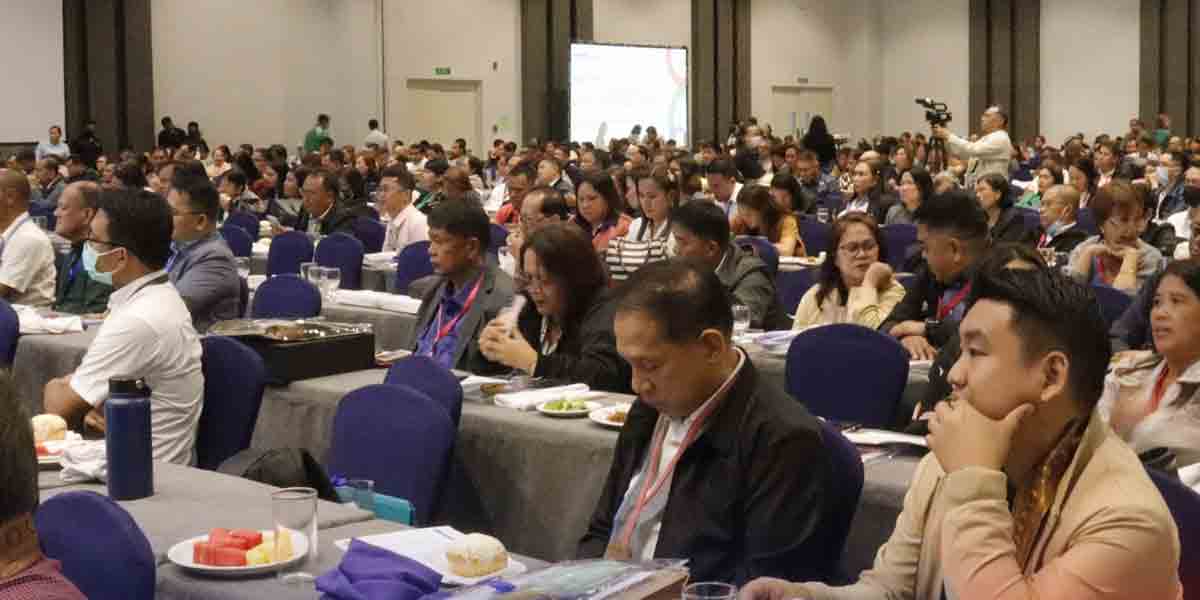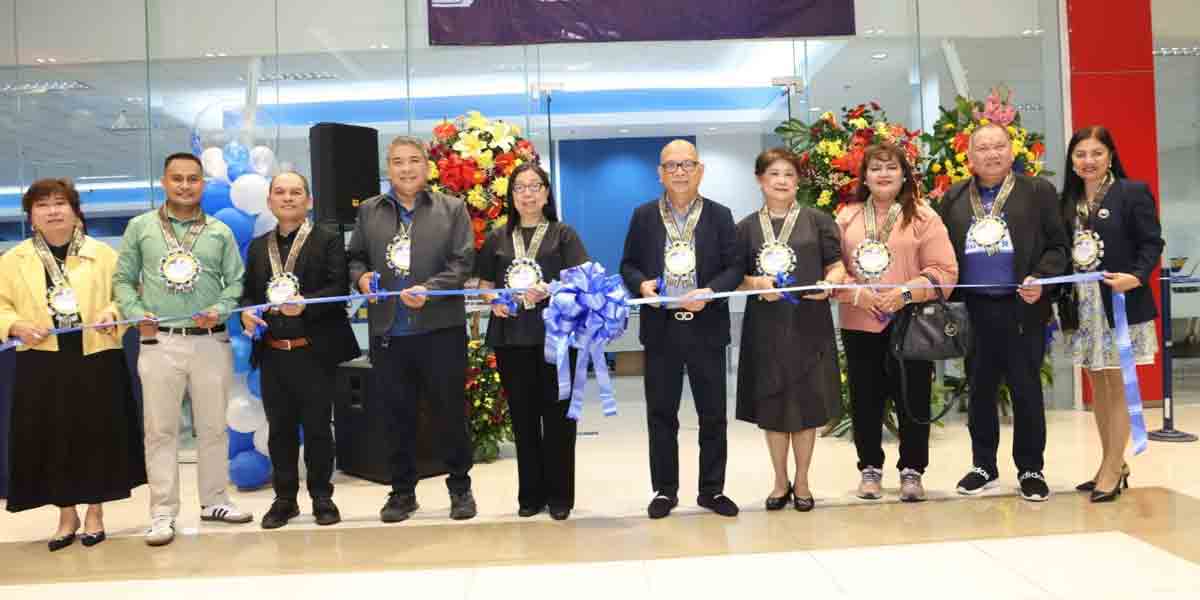
Iloilo City Mayor Jerry Treñas could not hold back his tears during the flag-raising ceremony at Plaza Libertad Monday as he led a prayer asking for divine support amid the continuing challenges brought about by the coronavirus disease (COVID-19) pandemic.
Treñas first spoke to Iloilo City Hall employees, particularly the recent developments in the city as COVID-19 cases continue to surge.
He mentioned the Iloilo City Fishing Port Complex that was placed on a temporary lockdown following the recorded death of a fish broker who tested positive for COVID-19.
In the last part of his speech, Treñas became emotional and eventually got teary-eyed while leading the Lord’s Prayer.
“Father, heal our land,” Treñas said as he ended his speech.
According to the mayor, he wasn’t able to contain his emotions because of the pandemic’s toll on everybody.
Despite his lengthy track record as a public official, Treñas said the pandemic has become his biggest challenge in public service.
“I was not able to contain my emotions as I lead the prayer together with our City Hall employees to ask for a divine support. During my service since 1986, this is my first time to experience this challenge but with the help of everyone, we can survive this pandemic,” he added.
The mayor also expressed his worry over the surge of Covid-19 cases in Iloilo City especially that the virus has made its way inside the City Hall with one of the legislative staff of Councilor Allan Zaldivar testing positive.
“Gapangamuyo gid kita, nga ang aton siyudad kabay pa mapalayo, worried kita because may ari sa diri sa City Hall. Kon waay kita nangin proactive sa aton obra wala naton nakita na may nagpositive na diri,” he furthered.
Zaldivar had confirmed that one of his staff tested positive for Covid-19.
Last week, the mayor ordered the massive rapid antibody testing of all City Hall employees over fears of transmission of COVID-19.
Treñas said he is also hastening the installation of a COVID-19 laboratory at the Alternative Learning System (ALS) building in Molo district.
COVID-19 cases in Region 6 have spiked to 1,547 with 788 active cases, 738 reported recoveries, and 21 reported deaths, as of Monday.
Iloilo City recorded 104 confirmed cases with 42 recoveries, five deaths, and 57 active cases.
Meanwhile, returning Overseas Filipino Workers (ROFs), locally stranded individuals (LSIs) and authorized persons outside residence (APOR) from Iloilo City who have been infected with Covid-19 totaled to 89 with 47 recoveries and 42 undergoing facility quarantine.
RESTRICTIONS RE-IMPOSED
An earlier curfew, age-based movement restrictions, and a liquor ban were re-imposed on Iloilo City starting today, Aug 4, to Aug 18, 2020 as the city continues to grapple with the coronavirus disease 2019 (COVID-19).
The restrictions were outlined in Executive Order (EO) No. 113 which Mayor Jerry Treñas issued on Aug 3.
The new EO reinstates old community quarantine policies such as:
– curfew from 10:00 p.m. to 4:00 a.m., except for those with work arrangements in Business Process Outsourcing (BPO) and Knowledge Process Outsourcing (KPO) companies, warehouses, logistics, ports, arrastre, food manufacturing, storage and preservation, hospitals, media, and other similar businesses or occupations which require employees to go to work within the curfew hours;
– all persons aged 21 years and below, as well as 70 years and above, except to buy or secure food and medicine or seek medical attention at hospitals or clinics;
– establishments may accept customers above 70 years of age during the first hour of their operations; and
– total ban on the sale and consumption of all alcoholic beverages.
The newest restriction is that all employees above 55 years of age should be allowed work-from-home arrangements, unless their presence in the workplace is necessary for the proper function of their office.
The new EO also reiterated previous community quarantine EOs in implementing minimum health standards, such as:
– use of face masks in public;
– alternative work arrangements such as work-from-home and alternating shifts;
– posting of COVID-19 hotlines at visible places in establishments;
– ensuring strict observance of physical distancing of one meter between persons by using markers and appointing monitors;
– constant disinfection at high-traffic and physically-touched areas such as push carts, trollies, baskets, door handles, staircases, elevators, escalators, and the like;
– provision of hand sanitizers and/or rubbing alcohol;
– use of non-contact thermal scanners;
– requiring employees to accomplish daily health interview cards which can be made available for inspection by authorities;
– use of foot baths; and
– cooperation for contact tracing efforts. (Joseph B.A. Marzan and ERS)




















